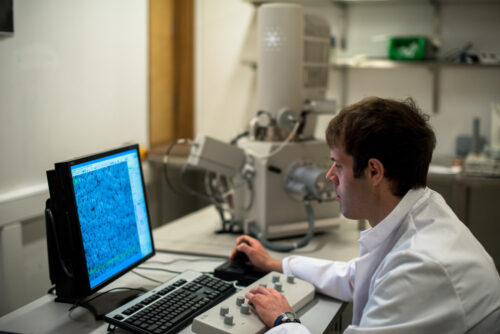Spotlight on EDX
This new feature will highlight the range of parameters we can provide along with a basic understanding how they work, their uses, and reasons why we would recommend using this route.
What is EDX?
Energy Dispersive X-Ray Analysis (EDX), referred to as EDS or EDAX, is an x-ray technique used to identify the elemental composition of materials.
Who would use the test?
EDX is a very powerful tool especially in contamination analysis. Other applications include rogue particle analysis, new vendor validation, product imperfection and defect analysis, quality control and product release.
What type of samples can be tested?
Metallic such as stainless steel, titanium, etc or non metallic such as plastic, polymers, ceramics etc.
How does the instrument work?
Elements emit a characteristic x-ray upon excitation with electrons with each wavelength being characteristic of each element. The energy of these emitted x-rays is measured and the quantity of each element present is calculated.
How much material do you need?
EDX systems are attachments to a Scanning Electron Microscopy (SEM) where the imaging capability of the microscope identifies the specimen of interest. This requires minimal sample size. A general rule of thumb is that if you can see it we can test it.
What phase is the best for the sample to be in?
EDX is a solid phase technique, however, particulate matter suspended in a solvent may be treated on site (filtering or centrifuge).
Is the technique destructive?
The technique is non-destructive to the samples, however they do need to be mounted on a platform.
What happens if the instrument breaks down?
We have a backup instrument. We also have a good relationship with Researchers in Tyndall National Institute and University College Cork. Our chemists are trained on their instrumentation and use them.
Research Area of Interest:Silica Material Production generating particles range that have different sizes, structures and performance. Porous, Non porous, Non porous large particle materials, Meso porous particles.
Contact Details: email: j.hanrahan@glantreo.com Telephone: +353 21 4901965
Keywords: Qualitative Testing, Identification of Unknowns
Hashtags: #EDX #Silica #MaterialsScience


